How Ecuador went from tourist haven to a nation in the grip of gangs
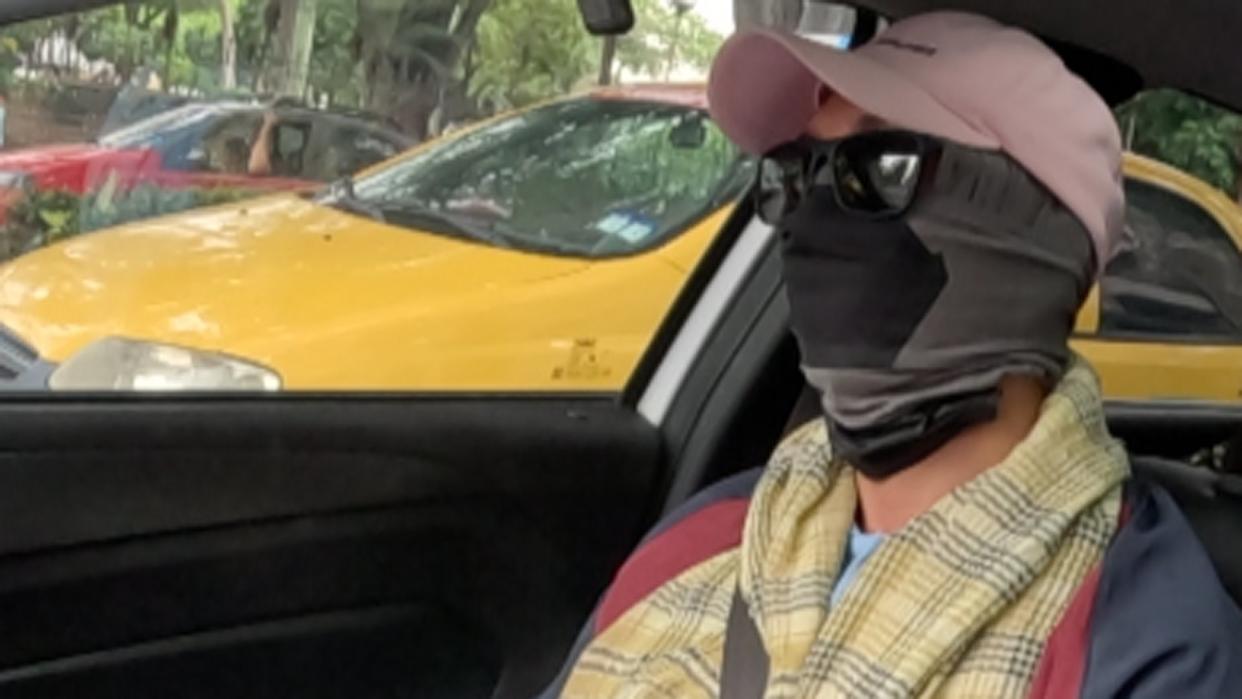
"Things are dangerous right now. Death can come from anywhere," Paul tells us. Small, skinny and about 30 years old, he is a member of one of Ecuador's most violent criminal gangs.
He believes he has been on a rival group's hit list for a year and a half and the only reason he is still alive is thanks to his mother's prayers: "It's like God doesn't want me up above, and the devil won't take me down below."
Paul (not his real name) explains he has spent about half of his life in the gang. Like many, he joined young, when he was 15. He thought it was going to be all "raves, parties, and girls".
As we talk, we drive around Guayaquil, Ecuador's largest city. Paul is afraid that if he stays still too long, his enemies from rival gangs - which are waging a bloody turf war - will catch up with him. So we keep moving to make it harder for anyone to follow us.
"I wanted respect," he says about his reasons for joining one of the up to 20 gangs which have contributed to the violence that has changed the face of Ecuador.
Until recently considered one of the safest countries in the region, Ecuador, which is also the gateway to the Galapagos Islands and home to the rainforest, attracted many tourists.
But now it has the highest recorded murder rate in Latin America.
In 2023, police recorded about 8,000 violent deaths. That is eight times more than in 2018 and puts Ecuador ahead of countries like Mexico and Colombia.
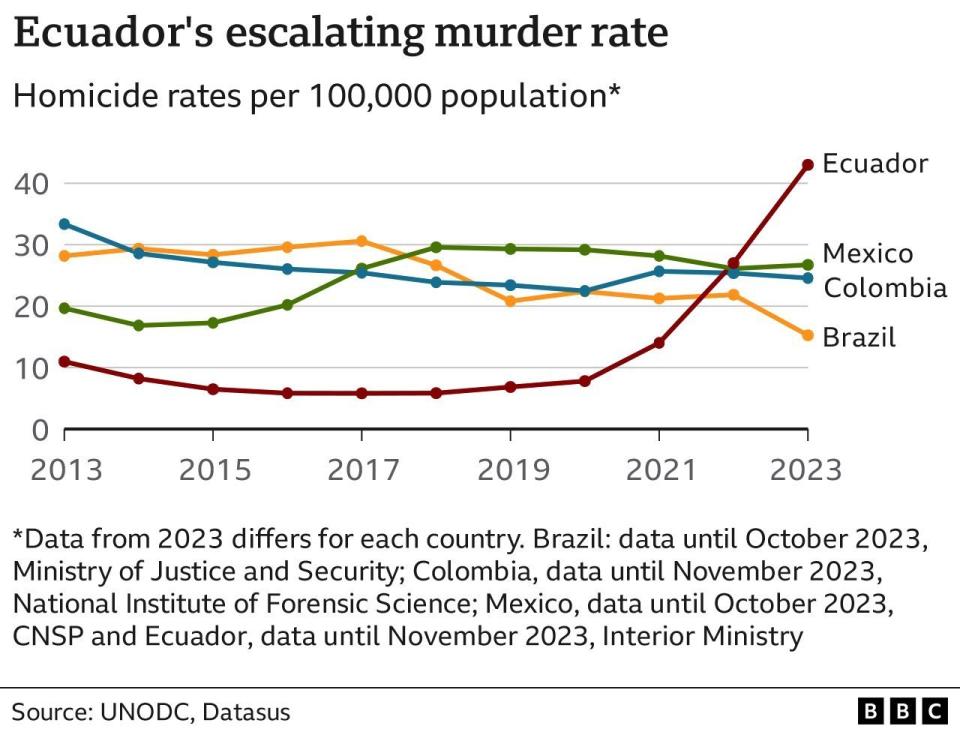
In January, Ecuador made headlines around the world when a TV station was taken over by armed masked men during a live broadcast. At the same time, gangs carried out kidnappings and set off explosions in multiple cities, and prisoners rioted in jails.
President Daniel Noboa, who had been sworn in just two months earlier, declared a state of emergency. Since then, police have arrested more than 16,000 people.
The state of emergency ended on Monday, but the president maintained a state of "internal armed conflict", with the military retaining exceptional powers.
He wants to introduce further measures such as stricter gun controls and tougher prison sentences. These will be put to a vote in a referendum on 21 April.
There is no doubt that the lives of many Ecuadoreans have changed due to the rise in gang violence.
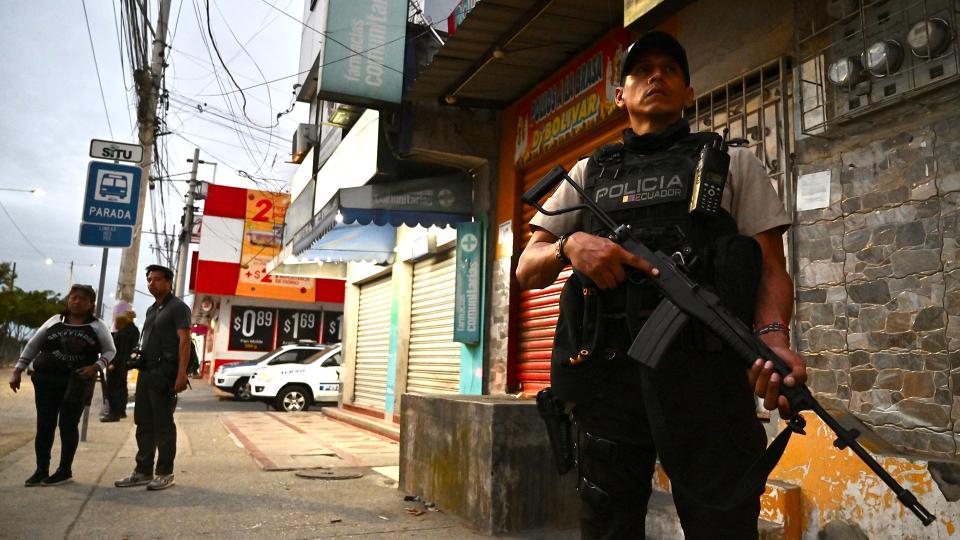
Dr Gabriela Almeida says she is seeing "more and more patients with anxiety, and people who are suffering from panic attacks".
Dr Almeida herself avoids going out at night. "There was a kidnapping near here, four blocks away," she explains.
"When I was a teenager, I remember seeing what was going on in Colombia," she says of the neighbouring country's drug-related violence.
"We never thought anything like that could happen in our country," she says, adding that she is considering emigrating to Spain because in Ecuador "we're living a nightmare".
Guayaquil, Ecuador's drugs hub
Much of that nightmare has been fuelled by the growth of the drugs trade.
Worldwide production and consumption of cocaine have reached record levels, according to the United Nations Office on Drugs and Crime.
Between 2020 and 2021 alone, cocaine production shot up by nearly a third and international drug cartels began looking for new routes through which to smuggle the cocaine produced in Colombia and Peru.
Ecuador, which is sandwiched between Peru and Colombia and whose authorities lacked experience in fighting trafficking, was seen as the perfect option.
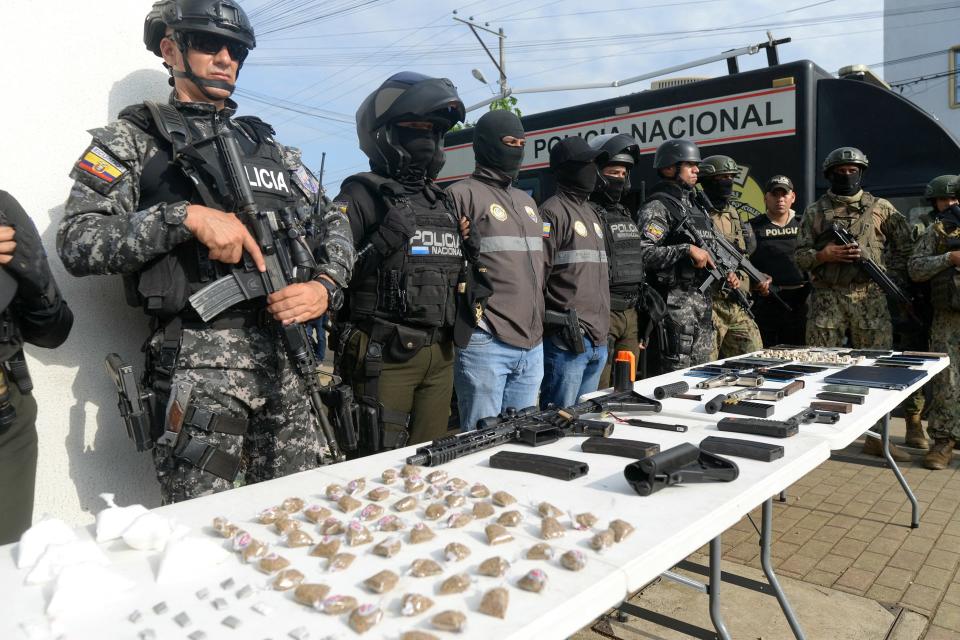
As a result, Ecuador has been transformed into a global distribution hub, where drugs are stored, prepared for transit - often hidden inside shipping containers - and sent out to their final destination.
Gangs like the one Paul is part of play a key role.
Paul tells us that he shifted from dealing relatively small quantities of drugs to trafficking kilogrammes of cocaine. He says his new role consisted of hiding illegal drugs among other products inside shipping containers.
Ninety per cent of illegal drugs leaving Ecuador are hidden inside shipping containers departing the port of Guayaquil, according to Ecuador's coastguard.
The coastguard has stepped up its surveillance but it says the risk for its staff has increased, too.
"In the past, we were dealing with common criminals. Now, anyone we see could have high-calibre weapons," one of the coastguard commanders tells us, as we join his team on a boat patrolling the port and surrounding areas.
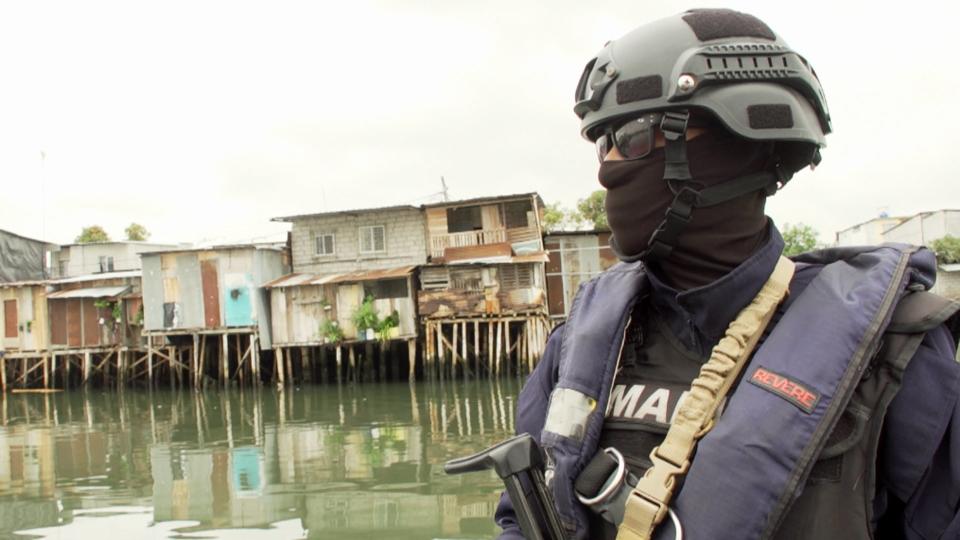
He does not want us to reveal his name for fear of reprisals from the gangs and wears a grey balaclava to hide his face.
His armed team carries out up to four patrols a day, looking for gang members who use small boats to try to hide drugs in containers stacked on the huge ships.
The commander says that they have been hampered by corruption in the past and Paul confirms that the gang used to pay off someone in the port to turn the security cameras away at key moments so gang members could carry out their illicit activities undetected.
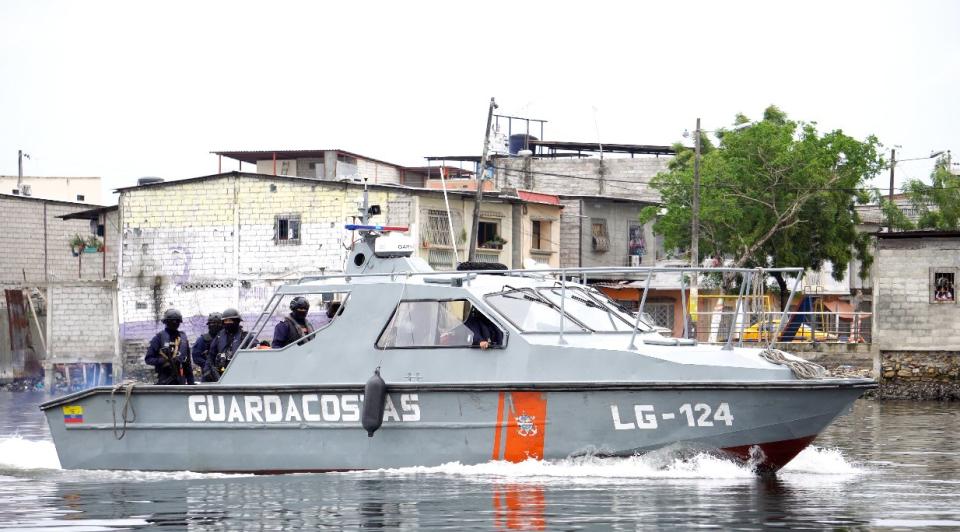
'Everyone wants territory…'
For Paul, more drug trafficking meant "more money, better weapons". But it also unleashed bloody turf wars between rival gangs.
"Everyone wants territory. Territory for selling drugs, territory for trafficking - even for extorting money from people and to kidnap," Paul explains.
When we ask why he refuses to leave the gang, he claims he has been less involved since going into hiding, but the gang members looking for him are "everywhere".
He tells us he keeps up his connections with his gang so that they provide him with backup if needed and more weapons to protect himself.
He could hand himself in to the authorities, but he claims that "the only way to quit the gang would be to leave the country" as gangs are active in prisons.
After we press him further about the nature of his involvement, he reluctantly admits that he has killed people but says he regrets destroying families.
"I feel remorse for taking people's lives. I struggle to sleep because I've hurt so many people."
Fighting for justice, suffering injustice
When we put all of these issues to the government, we were told it had "dramatically reduced" the number of violent deaths, "eliminated the power of organised gangs" in prisons, investigated cases of corruption, and it was winning the fight against "the mafia".
But the people tasked with bringing gang members to justice have become targets. Six public prosecutors have been killed in under two years.
One of them was César Suárez, who had been leading the investigation into the TV station attack as well as into a number of corruption cases. He was shot dead in Guayaquil in January.
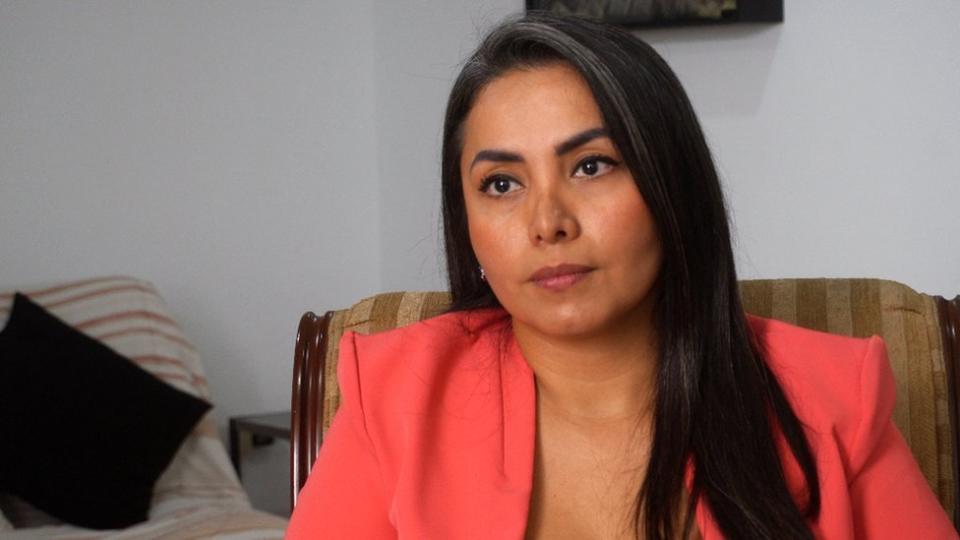
Fellow public prosecutor Michelle Luna recalls him as "a very cheerful person" who loved his job.
She and her colleagues fear that anyone who tries to take on Ecuador's violent gangs is now a target for organised crime and they are demanding extra safety measures. They want prosecutors' identities to be kept secret and for remote hearings to be brought in so they can avoid the risk of travelling to the same courtroom where the suspects are tried.
While she has not received threats personally, Luna worries it is only a matter of time until she does and is considering changing careers.
"If we don't get any more guarantees about our safety, I'll have to resign," she says. "Lawyers haven't studied and practised for years to do a job that is suicidal."
